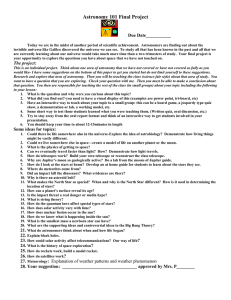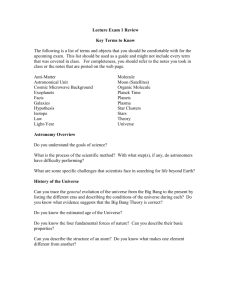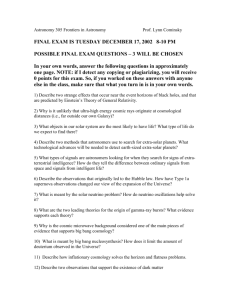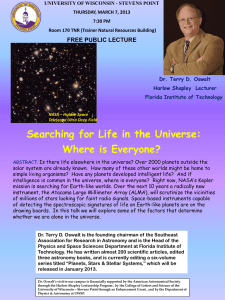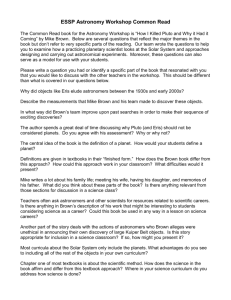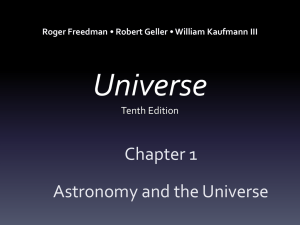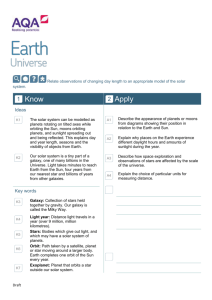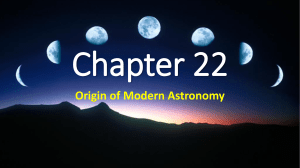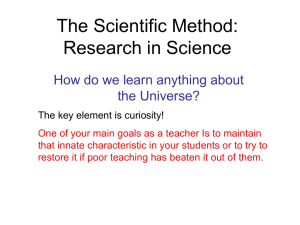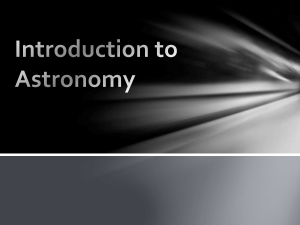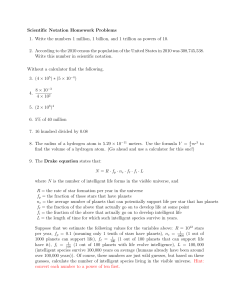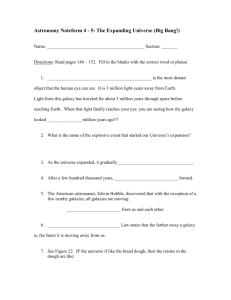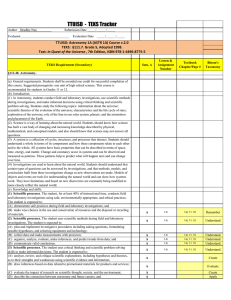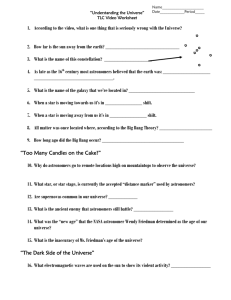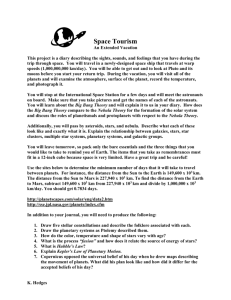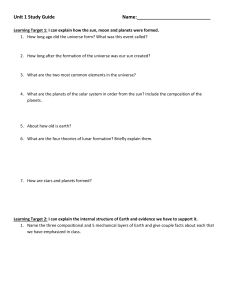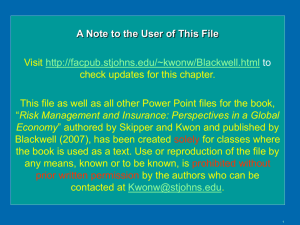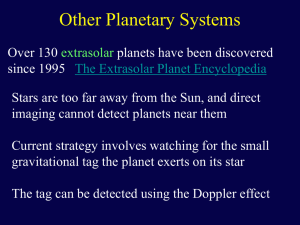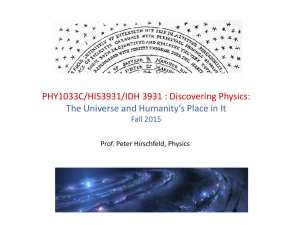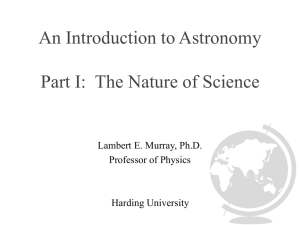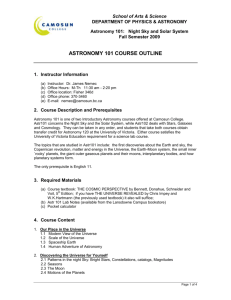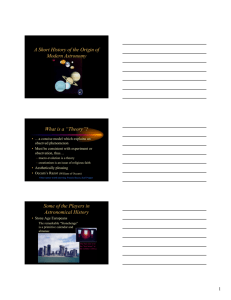The Tools of Astronomers
advertisement
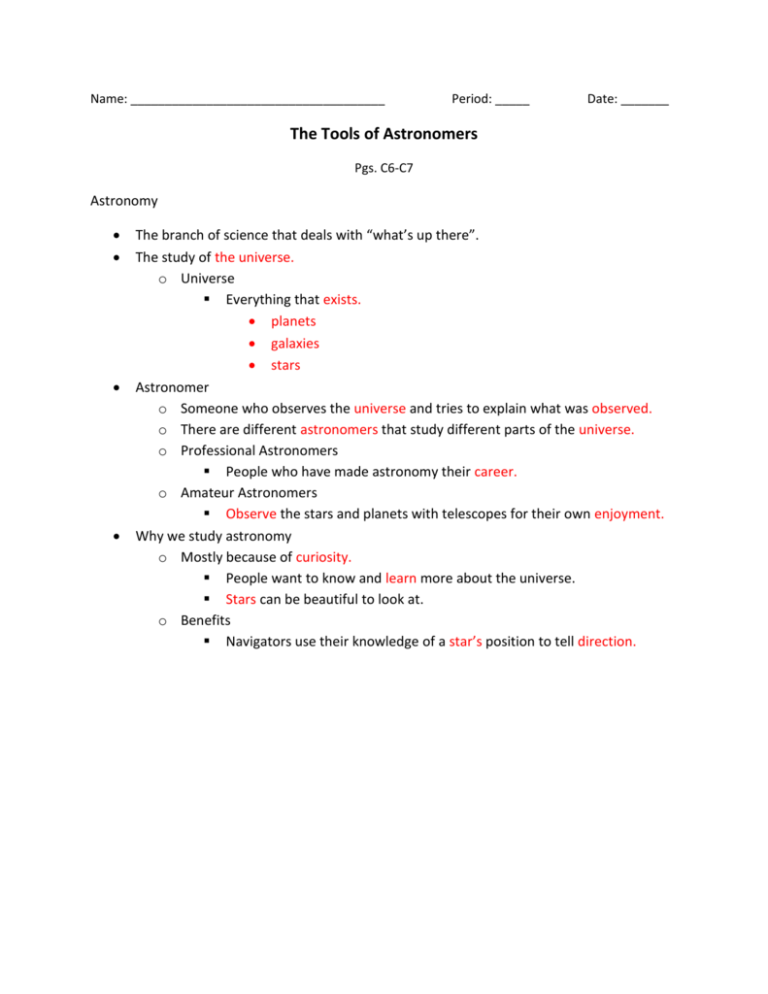
Name: _____________________________________ Period: _____ Date: _______ The Tools of Astronomers Pgs. C6-C7 Astronomy The branch of science that deals with “what’s up there”. The study of the universe. o Universe Everything that exists. planets galaxies stars Astronomer o Someone who observes the universe and tries to explain what was observed. o There are different astronomers that study different parts of the universe. o Professional Astronomers People who have made astronomy their career. o Amateur Astronomers Observe the stars and planets with telescopes for their own enjoyment. Why we study astronomy o Mostly because of curiosity. People want to know and learn more about the universe. Stars can be beautiful to look at. o Benefits Navigators use their knowledge of a star’s position to tell direction. Tools of Astronomy Eyes o Can observe day and night. o Can observe the position of some planets and stars o Can observe the position of the sun and moon in the sky. Do not look directly at the sun, it can harm your eyes. Telescopes o A device that collects light. o Makes distant objects appear closer and larger. o Most of what we know about the stars and planets comes from telescopes. Robots and humans in space. o Both have been to the moon. o Only robots have been sent to study other planets. Models, Theories, Hypotheses Models o Simplify the world so we can understand it better. Ex. The Earth is not exactly a sphere but we use a sphere as a model of the Earth. Theory o A well-tested scientific explanation supported by evidence. o Allows us to make a prediction about a scientific event or idea Ex. The theory of gravity explains the past motion of planets and allows us to predict their future motion. Hypothesis o A scientific explanation that has not yet been fully tested. As more evidence is found through observation a theory’s certainty increases. A theory can never be proven with complete certainty. Science can only tell what is likely, not what is certain. If new evidence does not support a theory, the theory must be changed.
